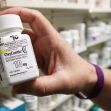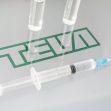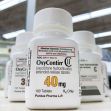In a historic opioid lawsuit settlement on Tuesday, Native American tribes will receive over $590 million from Johnson & Johnson and three of the largest US drug distribution companies, including AmerisourceBergen, Cardinal Health and McKesson.
The new settlement calls for Johnson & Johnson to pony up $250 million of the $590 million deal over the span of two years. The other three plaintiffs must pay in total the remaining $440 million over seven years.
This settlement will be shared among all federally recognized tribes, even if they did not participate in the lawsuit. However, the payouts will only be activated once 95 percent of the tribes participating in the lawsuit agree to the settlement. In total, there are 574 federally recognized tribes in the US, each of whom can participate in the settlement if they desire. Based upon US Census data from 2018, there are about 6.8 people who are listed as Native American Indians, with almost half of this population living within or near tribes.
Settlements with Native American tribes are ongoing across the US. All four plaintiffs in this case are currently in the process of finalizing settlements for about $26 billion, made with state and local governments.
The scourge of opioid addiction and overdose deaths has hit the Native American tribes hard, with studies reporting they have the highest per capita rate of opioid overdose of any population group in the US. The CDC reports Native American women experienced about 8.7 higher diagnoses of opioid addiction as compared to other American populations. The CDC data for American Indian and Alaska Native (AI/AN) populations reports they had the second-highest overdose rates from all opioids in the US in 2017, amounting to 15.7 deaths/100,000 population. The CDC also reports AN populations experienced the second-highest overdose death rates from heroin and third-highest from synthetic opioids in the US.
This deal is separate from the prior settlement made with three distribution companies, AmerisourceBergen, Cardinal Health and McKesson, with the Cherokee Nation of Oklahoma for $75 million.
As of today, about eighty percent of tribal citizens living among over 400 tribes have sued over the Opioid crisis. This settlement is considered a major win for the Native American Tribes.
Funds from the new deal would be earmarked for tribal usage among citizens for opioid addiction and treatment.
“The dollars that will flow to tribes under this initial settlement will help fund crucial, on-reservation, culturally appropriate opioid treatment services,” Douglas Yankton, chairman of the Spirit Lake Nation in North Dakota, said in a statement.
Aaron Payment, chairman of the Chippewa’s 45,000 member Michigan Sault Ste. Marie tribe agreed.
“My tribe has already committed to use any proceeds to confront the opioid crisis,” he said. “The impact of the opioid epidemic is pervasive, such that tribes need all the resources we can secure to make our tribal communities whole once again.”
Defendants in the case reacted differently to the huge settlement.
Pennsylvania-based company AmerisourceBergen said in a public statement the settlement deal will speed up the assistance for tribes.
In their statement, Johnson & Johnson said their settlement did not admit to any liability or wrongdoing.
Two other plaintiffs, Ohio-based Cardinal and Texas-based McKesson, declined to comment.
Prescription drugs including OxyContin, plus illegal drugs such as heroin and fentanyl, have caused over 500,000 deaths in the U.S. over the past twenty years.
The CDC reports that for the first time in US history, over 100,000 Americans died from opioid drug overdoses in one single year, between May 2020 and April 2021.






